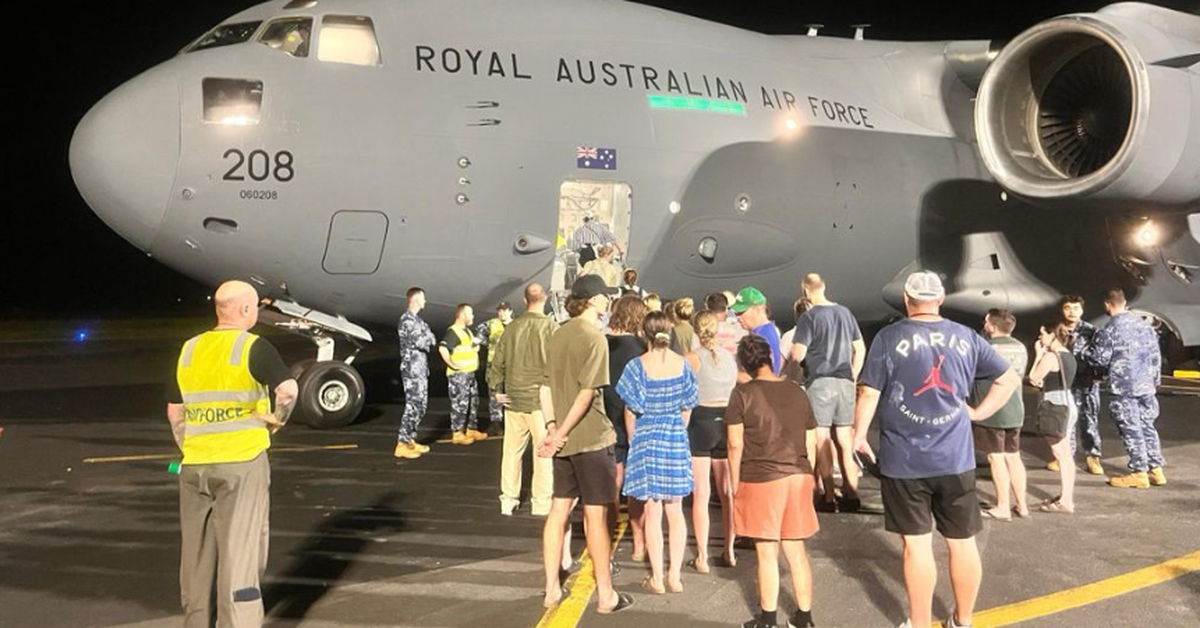Australia backs UN motion for ‘immediate, unconditional and permanent ceasefire’ in Gaza

- by Admin
- December 11, 2024

Australia has voted with more than 150 countries at the United Nations to demand that Israel reverse its ban on the Palestinian aid agency Unrwa and to call for an immediate and permanent ceasefire in Gaza, in a move which could further increase tensions with Israel.
At a UN emergency special session on Thursday, Australia voted with the vast majority of world nations to support the two resolutions, splitting from the US and Israel who voted against them.
The motion for a permanent and unconditional ceasefire, the release of hostages, the delivery of humanitarian aid and the protection of civilians passed with 158 members voting in support and nine against, and 13 abstaining.
A separate motion in support of the UN Relief and Works Agency for Palestine Refugees (Unrwa), calling for the Israeli Knesset to reverse laws banning the agency from operating in Israel and the occupied Palestinian territory, passed with 159 in support, nine against and 11 abstaining.
The Knesset had banned Unrwa over allegations its staff had ties with Hamas. The UN in August fired nine staff members after an internal investigation found they may have been involved in the Hamas-led 7 October attack against Israel.
Guardian Australia understands the federal government had reservations with the resolutions’ drafting but supported the underlying principles.
Australia’s representative to the UN, James Larsen, said while the government “does not agree with everything in the resolution” for Unrwa, its support “reflects our view that Unrwa must be able to continue its life-saving work”.
“We join the Security Council in expressing grave concern over legislation adopted by the Israeli Knesset,” he said. “Limiting Unrwa’s operations will only exacerbate an already-terrible humanitarian crisis.”
Larsen called on Unrwa to address any credible allegations against its staff and to ensure accountability for any breaches – saying “any involvement or affiliation with terrorist organisations cannot be tolerated”.
“Australia reiterates calls for the protection of humanitarian and United Nations personnel, including UNRWA staff, to enable them to perform their lifesaving work. The best protection for humanitarian personnel, and civilians, is a ceasefire.”
The resolution for an “immediate, unconditional and permanent ceasefire” comes almost a year after Australia joined with 152 other nations to demand a humanitarian ceasefire in Gaza and an immediate and unconditional release of all hostages.
It also urges all parties to comply with international laws, including by “releasing all those arbitrarily detained and all human remains”, and supports a pathway towards a two-state solution.
A separate resolution on Unrwa deplored the laws passed by Israel’s parliament in October designating the agency a terrorist organisation and banning it from accessing Gaza, the West Bank and annexed East Jerusalem within 90 days. It called on Israel to undo the decision and “allow and facilitate full, rapid, safe and unhindered humanitarian assistance” into the strip.
It expressed grave concern for the “catastrophic humanitarian situation of the Palestine refugees in the Gaza Strip as a result of military attacks, severe restrictions on humanitarian access, mass forced displacement”.
after newsletter promotion
In July the UN’s international court of justice ordered Israel to end its occupation of the Palestinian territories “as rapidly as possible” and make full reparations for its “internationally wrongful acts”.
While the ceasefire resolution recalled the ICJ’s advisory opinion, it’s understood Australia is still giving careful consideration to its conclusions.
Tensions between Australia and Israel have escalated after Australia sided with 156 UN member countries, including the UK and Canada, to demand the end of Israel’s “unlawful presence in the Occupied Palestinian Territory as rapidly as possible”.
Benjamin Netanyahu criticised Australia’s decision to support the resolution for the first time in two decades, claiming that the Albanese government held an “extreme anti-Israeli position”.
The Israeli prime minister also claimed that the government’s “anti-Israel sentiment” at the UN had led to an arson attack against a Melbourne synagogue, adding it was “impossible to separate” the events.
Wong defended Australia’s position against Israel’s criticisms on Monday, saying it was not antisemitic to “expect that Israel should comply with the international law that applies to all countries”.
“Nor is it antisemitic to call for children and other civilians to be protected, or to call for a two-state solution that enables Israelis and Palestinians to live in peace and security.”
Anthony Albanese denied Australia had changed its position on the conflict between Israel and Palestine on Wednesday after Crikey reported that Albanese had indicated a change could upset critics.
“I am on the record for a long time as being a supporter of the state of Israel,” the prime minister said. “But I also support Palestinians having a right to have their legitimate aspirations fulfilled. It has to be done in a way that provides security for everyone in the region.”
The Latest News
-
December 23, 2024Championship three-peat reward for ‘clinical’ Aussies | cricket.com.au
-
December 23, 2024Australian tennis star Purcell takes on voluntary provisional suspension for breaking anti-doping rules
-
December 23, 2024‘Back myself and be fearless’: Konstas lives by mantra in first hit | cricket.com.au
-
December 23, 2024Wimbledon champion accepts ban for anti-doping breach just months after winning US Open
-
December 23, 2024Australian tennis star Purcell takes voluntary suspension over anti-doping breach




